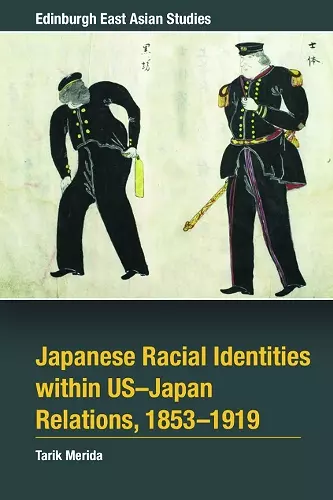Japanese Racial Identities within U.S.-Japan Relations, 1853-1919
Format:Hardback
Publisher:Edinburgh University Press
Published:21st Feb '23
Currently unavailable, and unfortunately no date known when it will be back

This book retraces the process through which, at the turn of the twentieth century, the Japanese went from a racial anomaly to honorary members of the White race. It explores the interpretation of the Japanese race by Western powers, particularly the United States, during Japan’s ascension as a great power between 1853 and 1919. Forced to cope with this new element in the Far East, Western nations such as the U.S. had to device a negotiation zone in which they could accommodate the Japanese and negotiate their racial identity. In this book, Tarik Merida, presents a new tool to study this process of negotiation: the Racial Middle Ground.
Tarik Merida brilliantly illustrates how modern Japan encountered the world of White supremacy and negotiated within it to create a "racial middle ground." With a sophisticated theoretical framework and detailed historical research, this provocative study overturns our common understanding of racial dichotomy to provide a new interpretation of how exceptionally complex Japanese racial identity was constructed. -- Kotaro Nakano, University of Tokyo
A promising scholar in the early stages of his career, Merida makes a significant contribution to our understanding of nineteenth and early twentieth- century Japan’s difficult entry into the exclusive circle of world powers. -- Joseph M. Henning * The Journal of Asian Studies *
This insightful book of diplomatic and social history seeks to understand how Japan became a “racial anomaly” in its negotiations with the West [...] required reading for anyone interested in the history of racial construction in and outside of Japan. -- Michael Sharpe * Pacific Affairs *
ISBN: 9781399506892
Dimensions: unknown
Weight: unknown
195 pages